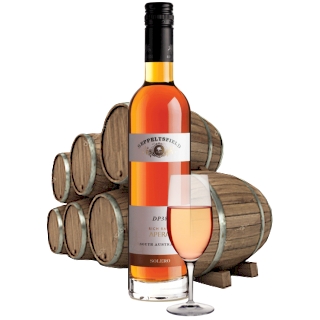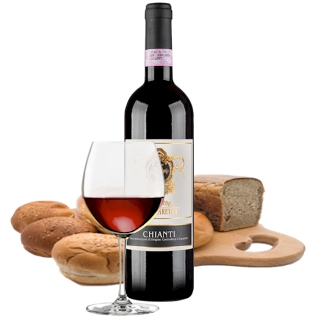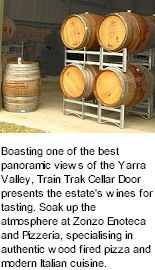


The Yarra Valley is one of the most renowned wine regions in Australia. It is the birthplace of Victorian vineyards, where wine has been continuously produced for over a hundred years. Train Trak relates to the railtracks which run through the property over a quaint trestle bridge. The train line, built in the 1800s was an important link to the Yarra Valley and is still a significant landmark traversing the local vineyards and pasture.

Train Trak is sited along the Healesville-Yarra Glen Rd, near the Yarra Glen Race Course. The Train Trak vineyards thrive under the Yara valley's cooler climes. In neighbouring Healesville for instance, the mean January temperature is just 19.4 degrees, lower than Bourdeaux or Burgundy in the same part of the growing season. Unless there is drought, the rain is quite constant throughout the year, with a peak in spring, annual rainfall is 910mm while in the growing season it is 400mm. There is always some threat of frost and hail, which can reduce yields, in spring and or summer.
The eighteen hectares vineyard sprouts north facing vines, planted to rich clay loam soils with a moderate and ideal fertility, with an average yield one and a half to three tones/ acre, depending on variety. The vines bare Chardonnay clones P58 and I10V3, Pinot Noir clones MV6 and D5V12, Shiraz clones PT23 and Cabernet Sauvignon clones PT23SA125, all of which are exclusively hand picked. The local cool climate produces a long ripening period, resulting in a full display of flavours and balanced acidity, harvest is usually carried out March to April.
The first estate vines were planted in 1995 and nurtured thereafter by the superior viticulture practices of John Evans. All wines are produced solely from estate grown hand picked grapes. Attention to vine site location, based on varietal preference, sophisticated trellis systems, canopy management and low cropping levels have resulted in exceptional wines, displaying intense varietal flavour and elegance. The winemaking reflects modern adaptations of traditional techniques, such as barrel fermentation in French oak, and gentle plunging of open top fermentors, ensuring all the intense cool climate flavours and colours are extracted.
























